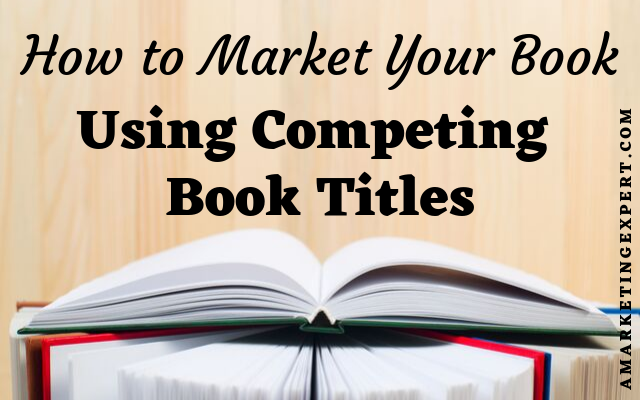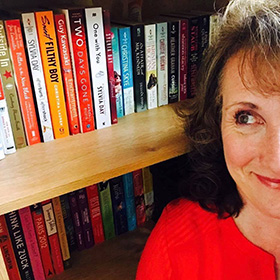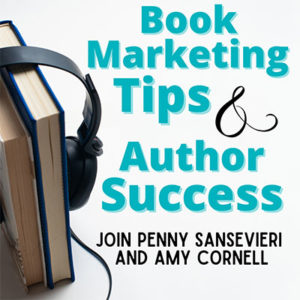As an author you’ve probably been told to look at competing book titles through multiple stages of your journey from writing, to publishing, to figuring out how to market your book to the right readers.
Competing book titles can be lucrative references for cover design, book length, choosing your categories and keywords, how to price your book, or determining the best strategies for how to market your book to potential buyers in your genre or topic, and more!
But even if we all know competing book titles can be used to our advantage, that doesn’t mean we’re all equally versed on how to go about finding those titles.
Maybe you’ve never done this research, or maybe you’ve tried a few obvious strategies but could dig deeper – so I’ve created a simple checklist for you to follow that will ensure you’ve done your due diligence, and should leave you feeling confident about how competitive you and your book are in your market.
You can track your competing book title research in any way that makes sense for you of course, but I recommend using a spreadsheet of sorts, or a simple document is fine, but be prepared to copy and paste URLs and links to the books you end up wanting to add to your list for consideration.
If you save the URLs, when you go back to see if you can weed any out, or when you start making your comparisons and assessments, you get to see the book in front of you in real time, how they’re listed for retail sale and being presented to potential buyers.
Plus if you save the URLs you can revisit this competitive analysis at any time you’re looking to revamp how to market your book, and know you’re working from the latest and most critical information.
Now let’s get started!
Do keyword research.
Keyword research will show you who else is showing up on Amazon for the keywords you’d like to be ranking for.
This is beneficial not only because you’ll start developing a list of titles, but it will also clue you in if you’re not on the right path with your keywords, or sometimes your branding. But we can fix that!
For example, what if a keyword search brings up a bunch of books that make you say, “My reader wouldn’t be interested in these!”
That’s a sign you might be using the wrong keywords.
There are lots of keyword programs and assistance out there, I recommend doing the research manually, that’s my preferred method, but having the proper keywords is really critical, so don’t get discouraged – feel grateful you have a chance to do things better.
If you’re sure your keywords are on track but the books coming up just don’t look like the kinds of books you had in mind, then perhaps you need to do some cover comparisons once you have a solid list of competing titles to work with – it may just mean you should consider tweaking the branding of your covers to ensure they align with your readers’ expectations for your genre or topic.
Cover changes can sound scary, but in reality they’re one of the most inexpensive ways to make a dramatic difference in your sales conversions.
Do category research.
Similar to keyword research, category research is just another layer of ensuring you’re aligned with your reader market’s expectations.
Get on Amazon, I recommend the Kindle search because there are so many more categories to choose from, and you can get really niche with your comparisons.
Start digging into categories you’d like to rank in, take notes of which books come up along the way, and go as far as you can down the rabbit hole of refine by terms that fit your book because this is how you find the competing book titles that are most like yours.
Finding these books and authors is so helpful when later determining how to market your book, because success leaves clues and I’m confident you can learn something from how they use their website and social media to promote their work.
And just like the keyword research, if red flags start flying because what you’re finding isn’t what you expected, consider whether you need to enlist some professional help determining your best categories, or again, whether you can make some small yet impactful branding tweaks to ensure your book is ready to really compete.
Do blog research.
Hopefully you’ve already done some blog research and you’re already pitching yourself (or preparing to pitch yourself) to blogs that could potentially give you a review, feature, spotlight or interview.
If you haven’t, start that now, because it’s relatively straightforward to find bloggers that cover specific genres and topics these days.
Once you have that list, check their posts to see who’s been getting coverage. These are the authors you want to reference and your competing book titles that will help you figure out how to market your book in the most lucrative ways.
And this information is really quite important because bloggers are thought leaders, they know what their followers want and they influence buying and reading decisions.
So whatever bloggers are covering should be on your list of competing book titles and what the authors of those titles are doing online to promote their books should give you a sense for what’s working for them.
Do look at the “Customers who bought this item also bought” section on your book’s page.
The “also bought items” section on your book page on Amazon is a great place to look for competing book titles because it gives you insight into buyer behavior.
Be prepared for some surprises here, because not every book will be a direct competitor of yours, but it’s a good reminder than a lot of readers, especially in fiction, will bounce between different subgenres and it’s important to remember these connections – and perhaps it will solidify some ideas you’ve had about branching out or starting a new series!
Do look at the “Customers Also Bought Items By” section on your Author Central page.
This section appears just below your Author Central profile picture and bio. Similar to the “also bought items” section, this gives you some insight into buyer behavior because Amazon is telling you the readers that buy your books, also buy books by those authors listed.
You can take this a step further as well.
If you have a short list of authors you aspire to emulate, because they’re already successfully servicing your ideal reader base, then check out the authors associated with them. This is a smart way to find competing book titles by branching out from a role model author in your genre or topic.
Do go to your local bookstore.
Bookstore people are a wealth of knowledge and the good ones, especially in indie stores, really stay on top of what’s working in retail, what readers are drawn to, and what trends are hot and even up and coming.
Bookstore people can also show you which sizes of books are really selling well, meaning you shouldn’t assume a standard size paperback is always your best option; which debut authors are really killing it in the market; and even what readers in your genre are asking for when they come in to find new books to read.
And don’t forget to read your genre!
I know it, none of us have a lot of free time these days but you should always make time to read what’s trending with your readers and what’s really working in your genre or topic, it will give you a strong sense for how your writing and story or content creation stacks up.
Being a true fan will also drive some creativity when it comes to how to market your book, because you’ll be in the headspace of your potential buyers and it’s so much easier to come up with unique promotions when you can put yourself in their shoes.
Do read reviews.
Once you have a solid list of competing book titles, be sure you’re not only reading as many of the books as you have time for, definitely read the reviews for the books as well.
Reviews tell you what readers like, what they don’t like, what stood out as special, what they found distracting or too complex, it’s another great tool for gathering insight into how to market your book and compete in your genre or topic.
Do take the time to figure out how to market your book the right way.
All of this information really adds up, and it’s pretty necessary for determining your book marketing approach as well. Again, success leaves clues.
So while you don’t want to mirror another author’s efforts exactly, and it’s not realistic to set benchmarks based on what the big name bestsellers are doing, you should definitely be able to pick up on new promotion ideas that you haven’t tried yet, or ways to engage with your fans more effectively on social.
At the end of the day researching and tracking competing book titles gives you a stronger sense of where you fall in the big scheme of things, whether you need to make some important changes to better align in your market, and it helps you set goals to reach that next level!
Resources and Downloads
5 Book Marketing Strategies that Make or Break Your Success
Free Monthly Book Marketing Planner
Please use the social share buttons below if you learned something from this post – your shares really help educate other authors, which raises the bar for publishing and gets more books in readers hands!





Great info , good thanks.